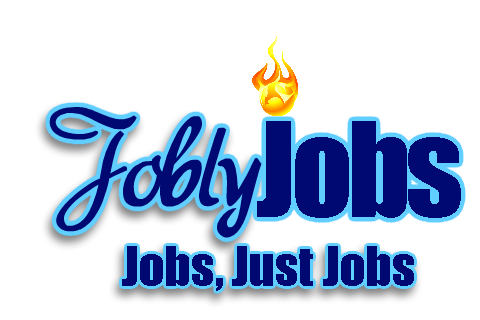Job hunting can be a numbers game, but strategy, rather than luck, is what makes it successful. If you’re aiming blindly, you’ll find that you’ll repeatedly get rejected or worse, ghosted.
Rather than burying your head in the sand and sending out another round of applications, it’s better to take a step back and troubleshoot the real reasons why you’re not getting hired. That way, you can improve the quality (not quantity) of your applications and increase your chances of landing a job you like.
So, here are some reasons why you might not be getting hired, as well as how to fix them.
1. You’re Overqualified
If you’re not getting callbacks, the problem may be that you’re overqualified for a listing. Companies look for a close fit—which means they need a candidate who meets as many of their requirements as possible.
Certain jobs, particularly those in specialized fields, require a bunch of certifications.
Recruiters cross-check for these required qualifications for the job during the early stages of the hiring process.
Being overqualified for a job can raise red flags for most recruiters. They’d regard the applicant as someone who might feel underemployed and quit in a short while. Because hiring is a costly and time-consuming process, most companies would rather not have short-term hires.
To increase your chances of getting hired, match the skills on your resume to the job you’re applying for. Prepare to show that you’re willing to do the tasks required, even if they are less complex than your last job.
2. Your CV Isn’t Impressive
Recruiters have to sift through a large number of resumes when considering applicants for a role, so if yours is uninteresting, it will be discarded. You can expect a similar outcome if your resume isn’t tailored to the job requirements.
What to do instead? You should tailor your resume and cover letter for each type of position—for example, you might have a content strategy resume and cover letter and another for product management—as well as other specific roles you’re interested in. Focus on emphasizing your relevant experience as accomplishments in your CV, and make sure to include major keywords from the job description.
By tailoring your resume and cover letter, you’re making it clear to anyone reading your application how you are qualified for the position, and subsequently, increasing your chances of landing a callback and/or job offer.
So, before you send out another application, update your resume with these tips. Here’s a list of other essentials for a winning resume to guide you as well.
3. Your Resume Isn’t Properly Formatted for an ATS
If you’ve done everything to optimize your resume and are still hearing crickets, there’s one more thing to do. It’s possible that your application isn’t correctly formatted for an applicant tracking system (ATS).
An ATS is a computer program that scans applications for eligibility based on the recruiters’ criteria. Because this is a robot and not a human, it’ll be programmed to vet and approve only resumes that contain certain keywords or phrases.
Your resume will be discarded if it is in an unreadable format for the ATS or if it lacks the required keywords. Due to the high volume of applicants, most online job application portals will use an ATS.
To ensure that the ATS reads your resume correctly, follow these steps:
- Avoid fancy layouts: Tables, graphics, fancy fonts, non-standard bullet points and columns should all be avoided. Tables, for example, allow candidates to pack a lot of info on their resume while conserving space, so it’s not uncommon to use them. But, ATS programs often have difficulty parsing or rendering the info in a table section, so entire sections can get jumbled or completely lost.
- Use keywords in the appropriate context: Recruiters are likely to search for qualified applicants using terms directly from the published job description, so analyze it for the skills and experiences they’re looking for, then include the ones you have in your resume—using the same terms.
- Use conventional headings for your sections: Use terms like “Experience” and “Education” as headings, instead of “Where I’ve Worked” and “Schools Attended”.
4. Your Interviewing Skills Could Use Some Work
Recruiters will learn about you first through your resume, and the first interview will give them the opportunity to see if you are who you say you are on paper. The first interview tells hiring managers a lot about you, including how well you communicate and think critically, as well as your professionalism and unique personality traits.
In today’s world, a candidate’s personality is just as important as their qualifications and experience. Recruiters want to know applicants’ core values, response to pressure and challenges, and even how they get along with colleagues. That’s why behavioral interviews are becoming so popular. You don’t want to be the person who can’t read body language, understand humor, or keep up with small talk. That person is highly unlikely to be hired.
To stand out in a job interview, consciously hone interview skills such as active listening, eye contact and other body language, empathy, storytelling, and small talk. Most of these skills can be improved simply by being aware of and mindfully practicing them, so if you’re reading this, you’re already halfway there.
Also, prepare for the interview by learning how to answer common interview questions like a pro. Although interviews are becoming more creative and unconventional, many companies continue to use traditional questions to get a general sense of where the candidate’s mind is at.
5. You Didn’t Research the Company
Another factor that could affect your job search is not doing enough research on the company and role. During an interview, many employers ask questions to assess a candidate’s knowledge of the company and the job. They want to know that a potential employee has done their homework on the company and is genuinely interested in working there.
This is one stone that candidates tend to leave unturned because it seems unlikely that a company will pass up a qualified candidate just because they didn’t know who the CEO was. But it’s a significant criterion because employers consider your likelihood of accepting an offer before extending one. Having knowledge about the company is one way to demonstrate your interest.
There are several platforms to get started with your pre-interview research—Glassdoor, LinkedIn, the company’s website, and good old Google Search. Study a company’s products and services, and prepare to discuss how you’ve used them or similar ones in the past. Also, get familiar with the company’s goals and objectives, and sell yourself by discussing how you can help with achieving them in light of the unique value you offer.
They say the internet never forgets, and it sounds ominous, but it’s true. With the reach and potential of social media platforms increasing by the hour, more people are being more intentional about how they present themselves online.
Having unprofessional content on your social media can jeopardize your job search. Recruiters and potential clients can evaluate your competence and suitability for a job based on your online personality and activities.
As a result, when job hunting, it’s critical to pay attention to how you use and conduct yourself on social media. You’ll need to clean up your social media pages if there’s any inappropriate content on them. To help you get started, here’s a guide to cleaning up your social media for a job search.
Refine Your Approach
Job hunting is a delicate process, and you need to be a polished performer to land that job, as competition is stiff. Hopefully, this article has assisted you in identifying areas where you may be making mistakes, adjusting your methods, and accelerating your exit from unemployment.
It might take a while before you land the job of your dreams, so read up on how to stay focused and motivated during your job search.
Read Next
About The Author




